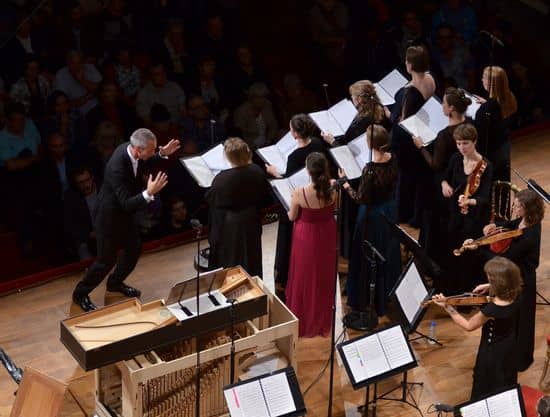Psyche
Matthew Locke
Psyche (1675) is claimed to be a future model of the operatic genre, a new attempt to unite theater and music. King Charles II, anxious to match the artistic splendor of Louis XIV, asked Matthew Locke to develop the first English opera. Locke may even have composed this work as a riposte to the visit of the Royal Academy of Music troupe, under the direction of its creator Robert Cambert (Lully’s predecessor) to Londres en 1674.
Composed on a translation of the libretto by Molière, Corneille and Quinault that had been used for Lully’s Psyché, this English Psyché was not based on the Italian opera model, nor on the new French lyrical tragedy inaugurated the year before (Lully’s Cadmus & Hermione): it was in fact the very first semi-opera, in which the lyrical art – with the very first English recitatives – coexisted harmoniously with the theater, in the vein of the Masks that preceded it.
The splendor of the numbers (probably more than 100 artists at the creation), the beauty of the music, the perpetual invention (echoes in different parts of the stage, varied and precisely described instrumentations, harmonic madness of the numerous choirs) make this Psyche an unknown monument in the history of English music, a source from which Blow and Purcell will draw directly.
Since 2016, the Correspondances ensemble has approached the lyrical genre through an unconventional repertoire: first Charpentier’s sacred stories brought to the stage, then a Court Ballet – a great genre preceding opera in France – combining music, circus, poetry, machines, sets, costumes, dance…
In 2019, our choice fell on this English Psyche, whose similarities with the Royal Ballet of the Night are numerous. Claimed to be a model of the genre, this work is situated at a pivotal moment in the history of English music: between the court masque and the Italianate opera of the 18th century, the semi-opera opens the way for the leading composers of the Restoration (Blow and Purcell in the first place).
As for the Night Ballet, but for other reasons, only Locke’s score has come down to us (Draghi’s, which contained many dances, was lost). It was therefore necessary to draw on the musical repertoire of 17th century English theater to recompose this Psyche in its entirety, which will surely owe more to Matthew Locke than the original!
Music by Matthew Locke & Giovanni Battista Draghi
Booklet by Thomas Shadwell
Created on 27.02.1675 at the Dorset Theatre in London
Based on Lully’s Psyche (Paris, 1671)
